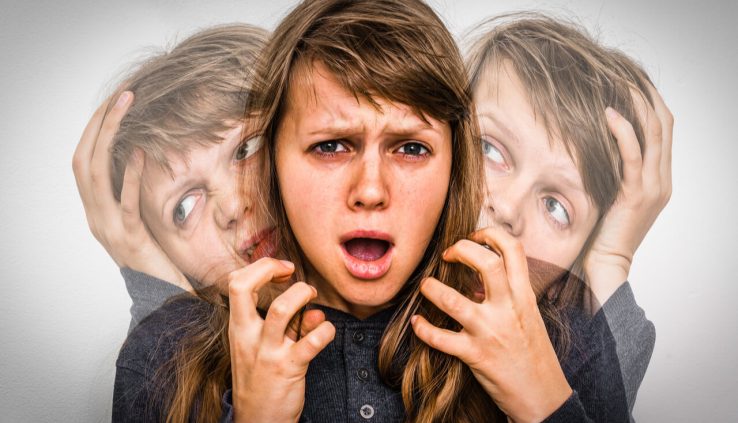Learning the signs and symptoms of anxiety disorders is the key to understanding this mental condition. Chest tightness and difficulty breathing are common factors that are often associated with this mental illness. It’s pretty scary and alarming whenever you feel difficulty breathing, especially when followed by chest tightness. However, it’s only fatal if it’s directly connected to heart disease.
We will focus on understanding the signs and symptoms of anxiety disorders in this article. We will also talk about its definition and how it’s connected to shortness of breath. We will also cover some of the most effective techniques that can help you in dealing with your mental health. For example, some walking can help you relax, as well as other forms of exercises. So, let’s begin with the definition of anxiety.
Anxiety Explained
Anxiety is a type of emotion that deals with dread, unpleasantness, and general negative thoughts that forebode ill anticipation of future events. People with anxiety often worry too much and tend to lose their focus. They are also likely to withdraw from confronting situations that may trigger the emotion.
Connection Between Anxiety Shortness of Breath
 Shortness of breath and chest tightness are two of the most common reactions from our body for anxiety. Although they are both natural, it can be quite alarming up to the point of panic. Researchers were able to confirm a strong link between shortness of breath and chest tightness to anxiety. Here’s a list of the other signs and symptoms that you may experience:
Shortness of breath and chest tightness are two of the most common reactions from our body for anxiety. Although they are both natural, it can be quite alarming up to the point of panic. Researchers were able to confirm a strong link between shortness of breath and chest tightness to anxiety. Here’s a list of the other signs and symptoms that you may experience:
• Hyperventilation or fast breathing
• Chest tightness
• Suffocating feeling or breathlessness
• A sensation like there is a lump on your throat
• Muscles tension
• Palpitations that become faster and stronger
• Fainting spells, dizziness, and instability
• Nausea and general discomfort on your stomach
• Irritability, on edge, and restless pacing back and forth
Causes of Shortness of Breath in Anxiety Attacks
If you were living with anxiety and confronted with a flight-or-fight situation, shortness of breath and chest tightness are the two most common initial reactions that you may experience. It may be that you are not in real danger that may cause you to run for your life, but your body may respond like it has to. As your body prepares itself to flee, your muscles tighten, which causes chest tightness and shortness of breath. This feeling is a strong indication of an anxiety attack that can happen anytime and anywhere. Different factors can trigger this emotion like being trapped in the middle of a crowd or presenting a report in front of an audience.
Tips to Manage Shortness of Breath from Anxiety
Health professionals suggest that you practice diaphragmatic breathing to help counter or manage shortness of breath and chest tightness due to anxiety attack.
Benefits of Diaphragmatic Breathing Technique:
• Effectively slow your heart rate and rate of breathing
• Reduce the amount of oxygen your body requires
• Promote less effort when breathing that saves energy
How to Perform Diaphragmatic Breathing
• Sit or lie on a chair or bed as comfortably as you can
• Make sure that your head rests on a pillow or backrest of a seat
• Place either of your hands on your upper chest
• Place the other hand on your ribcage
• Breathe slowly through your nose
• Compress your stomach muscles
• Hold the position
• Exhale while keeping the position
• Perform this method at least five to ten times a day
The diaphragmatic breathing technique is one of the most efficient ways to ease the tension from shortness of breath because of an anxiety attack. However, there are other techniques that you can also try. These are:
• The Grounding Technique: clench a specific body part and gradually releasing them.
• The Mindful Distraction Technique: Focus on a specific object inside the room and its features.
• Talking to Yourself: Think of the current situation as normal and not life-threatening.
• Exercises: Focused physical activities release serotonin and dopamine, which makes you feel good.
• Self-Care: Focus on a healthy diet and avoid stressful situations which can trigger anxiety.
• The Shock Treatment Technique: Shock your body with a bowl full of ice to divert your attention.
These steps can prevent a full-blown panic attack which may save your life. The key is to focus and concentrate. You must learn how to observe your situation and recognise the early signs that may trigger an anxiety attack. That way, you can prepare yourself and never get caught off-guard. You can also record the dates, triggers, and other factors that cause the attack so you can focus more on the prevention.
Other Factors Why You Experience Shortness of Breath
Recognising the difference between a panic attack or heart disease symptoms is a crucial factor that can save your life. Chest tightness and shortness of breath may also be a sign of heart attack. So, here are that other factors that you need to know:
• Exercise fatigue
• Changes in the altitude
• Tight clothes
• A relaxed lifestyle
Too much exercise or even long periods of inactivity may cause shortness of breath and chest tightness. Overexertion from training drills causes your heart to pump more blood than normal, which causes you to lose your breath. On the contrary, years of sedentary lifestyle causes you to drain your stamina and endurance even with the slightest physical activity. So click on this site to start building stamina.
Health Conditions that May Cause Shortness of Breath
• If you are asthmatic
• If you have COPD or Chronic Obstructive Pulmonary Disease
• Heart disease or heart attack
• If you have pneumonia
• Low-blood pressure
• If you have upper airway obstruction
Consult Your Doctor When:
• Chest tightness is accompanied by pain in your arms, neck, jaw, and shoulders
• Fatigue that doesn’t go away after rest or sleep
• Vomiting, nausea, or lightheadedness
• Your shoulders feel sudden discomfort
• Excessive sweating without physical activities
Chances are, you may be experiencing the signs and symptoms of a heart attack. It’s best to call your doctor immediately in these given situations.
Conclusion
Now that you know the difference between the signs and symptoms of an anxiety attack or heart attack, it’s best if you take them seriously. Both conditions have the potential to kill in a slow and quick method. If left unchecked, anxiety can develop into a mental disorder that could only be treated in a mental facility. Take care of your nutrition and daily routine. If you encounter any of the symptoms that we discussed above, be sure to address it the right way.

